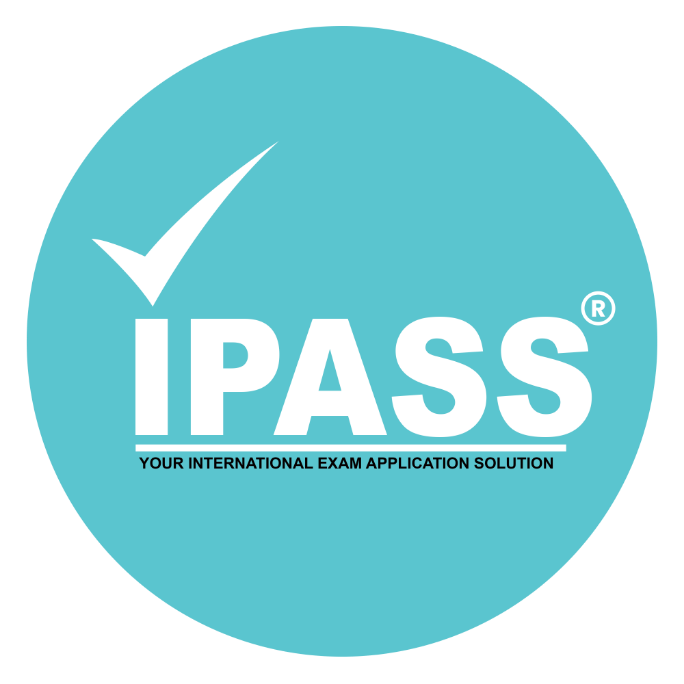Your cart is currently empty!

Ace the May 2025 PNLE: Final Week Preparation Tips
(Estimated Reading Time: 9 minutes)
Feeling butterflies before next week’s May 2025 PNLE? You’re not alone! That mix of panic and “did I study enough?!” hits everyone. Let’s be honest—how you handle this final week can make or break your confidence walking into that exam room. But here’s the good news: with the right approach, you can transform this pressure-cooker week into your secret weapon.
This guide offers proven strategies from Filipino nurses who’ve stood where you are. Consider it your roadmap through exam jitters. Remember, this isn’t just a test—it’s your gateway to becoming a registered nurse who provides compassionate, ethical care.
Helpful Tips to Do One Week Before the May 2025 PNLE
Hopefully, you’ve been studying hard for the licensure exam for several months now. But what should you be focusing on in the last week before your exams? Here are the things you should be doing to prepare for your exams with one week to go:
1) Get Plenty of Sleep
The anxiety you get from the thought of the examination can hinder you from getting a goodnight’s rest. Exam anxiety often disrupts sleep patterns, but adequate rest is non-negotiable for peak cognitive performance. Sleep deprivation significantly impairs your brain’s ability to form neural connections and retain information. According to research published by sleepfoundation.org, lack of sleep negatively affects critical thinking abilities, and memory recall by up to 40%.
Aim for 8-9 hours of quality sleep each night during this critical week to ensure your mind remains sharp and receptive. Establish a calming pre-sleep routine: disconnect from electronic devices 1-2 hours before bedtime, practice gentle stretching or meditation, and maintain a cool, dark sleeping environment.
2) Eat a Balanced Meal Before Taking the Exam
Your brain requires specific nutrients to function at its highest capacity. Before the exam, focus on meals that strategically combine:
- Complex carbohydrates (whole grains, quinoa, brown rice) for sustained energy
- Lean proteins (fish, poultry, tofu, legumes) for neurotransmitter production
- Antioxidant-rich fruits and vegetables to combat oxidative stress
- Healthy fats (avocados, nuts, olive oil) for brain cell maintenance and communication
- Hydration (2-3 liters of water daily) for optimal cellular function and cognitive processing
Studies show that proper hydration alone can improve cognitive performance by up to 14%. Begin each study session with a glass of water and keep a water bottle nearby throughout your preparation.
3) Do Light Exercises
A substantial body of research demonstrates that physical activity directly benefits brain function and exam performance. According to recent neuroimaging studies published by SciTechDaily, moderate exercise increases brain volume, particularly in the hippocampus—a region critical for memory formation and recall. Exercise also triggers the release of brain-derived neurotrophic factor (BDNF), which promotes neural growth and connectivity.
Incorporate 20-30 minutes of moderate activity (brisk walking, cycling, swimming) into your daily routine. These sessions provide mental relief from intensive studying, reduce stress levels, and prime your brain for optimal information processing.
4) Remember to Take Breaks!
While consistent studying is essential, continuous brain work without proper breaks becomes counterproductive. The optimal study-to-break ratio according to cognitive research is 50 minutes of focused study followed by a 10-minute break. During longer study sessions, incorporate a longer 30-minute break every 2-3 hours.
These strategic pauses allow your brain to consolidate information, prevent cognitive fatigue, and maintain peak mental performance throughout your preparation.
5) Implement Effective Study Techniques
During this final week, shift your focus from content acquisition to knowledge consolidation and application:
- Spaced repetition
Review previously studied concepts at strategically increasing intervals to strengthen recall
- Active recall
Test yourself on key concepts rather than passively reviewing notes
- Practice questions
Focus on simulated exam scenarios that mirror the actual test format
- Condensed summary sheets
Create one-page summaries of complex topics, focusing on high-yield information
- Teach-back method
Explain difficult concepts to study partners to solidify your understanding
Studies show that active recall techniques improve information retention by up to 150% compared to passive reviewing.
6) Practice Stress Management Techniques
Exam anxiety can significantly impair performance regardless of preparation level. Incorporate these evidence-based stress management techniques:
- Diaphragmatic breathing
Practice 4-7-8 breathing (inhale for 4 counts, hold for 7, exhale for 8)
- Progressive muscle relaxation
Systematically tense and release muscle groups to reduce physical tension
- Visualization
Mentally rehearse successful exam performance and calm confidence
- Positive affirmations
Counter negative thoughts with realistic, encouraging statements
- Mindfulness meditation
Practice present-moment awareness to reduce anxiety
Research shows that students who practice these techniques experience up to 15% improvement in test scores compared to those who don’t.
7) Prepare Your Exam Essentials a Day Before
Gather all required materials at least two days before the exam. This preparation ensures you won’t forget essential items and helps reduce last-minute stress. Create a checklist and prepare a designated exam bag containing all necessary items. The list of required items set by the PRC can be found in a separate section below.
Additional Test-Taking Strategies During the May 2025 PNLE
When you finally sit for the May 2025 PNLE, all your preparation meets the moment of truth. Having strategic approaches ready can make the difference between freezing up and showcasing your true knowledge. Here are some proven test-taking strategies that you can take advantage of:
A) During the Examination
- Read each question carefully, identifying key terms and requirements
- Use the process of elimination for multiple-choice questions
- Budget your time wisely—approximately 1.5 minutes per question
- Mark difficult questions and return to them after completing easier ones
- Trust your preparation—your first answer is often correct
- Maintain awareness of your timing throughout each section
- Stay focused on your own exam; ignore others’ pace or behaviors
B) Managing Test Anxiety
- Practice controlled breathing at regular intervals
- Use positive self-talk to maintain confidence
- Focus on one question at a time rather than the entire exam
- Take brief mental breaks (30 seconds) between difficult questions
- Remember your preparation and capabilities when facing challenging items
These strategies aren’t just techniques—they’re your toolkit for translating years of nursing education into the licensure that launches your professional journey.
Schedule for the May 2025 PNLE
Below is the 2-day exam schedule. Please adhere to it to prevent issues and delays before, during, and after the nursing board exam.
MONDAY, MAY 5, 2025
• 7:00 am – 7:45 am
General Instructions and Filling-out of Forms
• 8:00 am – 10:00 am
Nursing Practice I – Community Health Nursing
• 11:30 am – 1:30 pm
Nursing Practice II – Care of Healthy/At-Risk Mother and Child
• 2:30 pm – 4:30 pm
Nursing Practice III – Care of Clients with Physiologic and Psychosocial Alterations (Part A)
TUESDAY, MAY 6, 2025
• 8:00 am – 10:00 am
Nursing Practice IV – Care of Clients with Physiologic and Psychosocial Alterations (Part B)
• 11:30 am – 1:30 pm
Nursing Practice V – Care of Clients with Physiologic and Psychosocial Alterations (Part C)
General Instructions to Remember Before Taking the May 2025 PNLE
Here are the general guidelines based on the official PRC guidelines for the May 2025 Nursing Board Exam Nursing Board Exam:
1) Visit Your Assigned Examination Room Prior
The PRC advises the examinees to check and verify their room assignments beforehand. It is to ensure everything runs smoothly during the examination day and avoid delays and confusion.
You can do this by visiting the official website of the PRC or by checking the notices or announcements posted at the PRC premises. In addition, it is a good practice to check the examination venue two (2) to three (3) working days before your scheduled exam.
2) Be Early on the First Day of Examination
On the first day of the examination, report to the school or building assignment before 5:30 a.m. to verify your seat and room number. Punctuality is essential, as late examinees will not be allowed to enter. Check the schedule of the May 2025 PNLE on a different section below.
3) Wear Proper Dress Code
On each examination day, examinees must adhere to the specified dress code. Outlined below are the PRC guidelines on what to wear in nursing board exam:
• Male Examinees: Examinees must wear clinical uniforms with white shoes and white socks, excluding any nameplate, school insignia/logo, or pin. Moreover, school uniforms are not permitted.
• Female Examinees: Examinees must wear clinical uniforms along with white shoes and white stockings, excluding any nameplate, school insignia/logo, or pin. Moreover, school uniforms are not permitted.
• Pregnant Female Examinees: White Clinical Scrub Suit
4) Make Sure to Bring the Necessary Items Needed for You Examination
On examination day, ensure you have the following items with you:
a. Notice of Admission
b. Official Receipt
c. Ball pens with BLACK ink only
d. One long brown envelope
e. Two or more pencils (No. 2)
f. One long transparent/plastic envelope (for storing your valuables and other permitted items)
5) Take Note of the Prohibited Items
The following items are STRICTLY PROHIBITED within the examination area:
a. Books, review materials, notes, and other printed materials containing coded data, information, or formulas are strictly prohibited.
b. ALL KINDS OF CALCULATORS are prohibited.
c. Smart watches (Samsung, Apple, etc.), Cellular Phones, Transmitters, Ear Plugs, Portable Computers, Bluetooth Devices, and other electronic devices are strictly prohibited. Using these devices to retrieve data, information, or communicate for any purpose is strictly prohibited within the examination premises.
d. Bags of any kind (sling bag, backpacks, attach case, etc.)
e. Additional nursing board exam aids not mentioned in this program. So, examinees must surrender all personal belongings to the proctor upon entering the examination room. Moreover, the proctor will securely store the items within the designated space during the exam.
Proctors or Room Watchers will strictly enforce the rules on bodily search and inspection of belongings during the licensure exam. These guidelines are outlined in Annex A of PRC Memorandum Order No. 57 (s. 2020).
Your Nursing Legacy Begins Here
Let’s get real—crushing the May 2025 PNLE isn’t just about cramming facts. It’s about bringing your A-game in three key areas: solid prep work, smart test-taking, and keeping your head in the game when pressure hits.
But here’s the thing—this is just one chapter in your nursing story. The nurse you’ll become isn’t defined by a single test score, but by how you keep growing, learning, and bringing your whole heart to patient care every single day.
So take a deep breath. Stand tall. Trust all those late nights and practice questions. You’ve put in the work, and now it’s time to show what you’re made of!
The entire IPASS Processing team is cheering you on! We can’t wait to see the amazing nurse you’re about to become—your patients are the lucky ones!
Recommended Reads
- Pass the NCLEX with Confidence – Join IPASS NCLEX Review 18th Cycle
- NCLEX Pass Rates 2024: Key Insights You Need to Know
- May 2025 PNLE Results: Top Schools & Topnotchers
- Ace the May 2025 PNLE: Final Week Preparation Tips
- Nursing Job Opportunities in the Philippines for USRNs
Recommended Topics
- ASCPi (1)
- Australia (8)
- Canada (5)
- Exam Tips (28)
- General (120)
- IPASS Events (10)
- IPASS News (129)
- Middle East Nursing (17)
- NCLEX (65)
- New Zealand (3)
- NMBI Ireland (1)
- Online Review (13)
- PNLE Online Review (3)
- Tourist Visa (1)
- UKNMC (1)
- US Nursing (12)
- UWorld (1)
- VisaScreen (3)








Leave a Reply